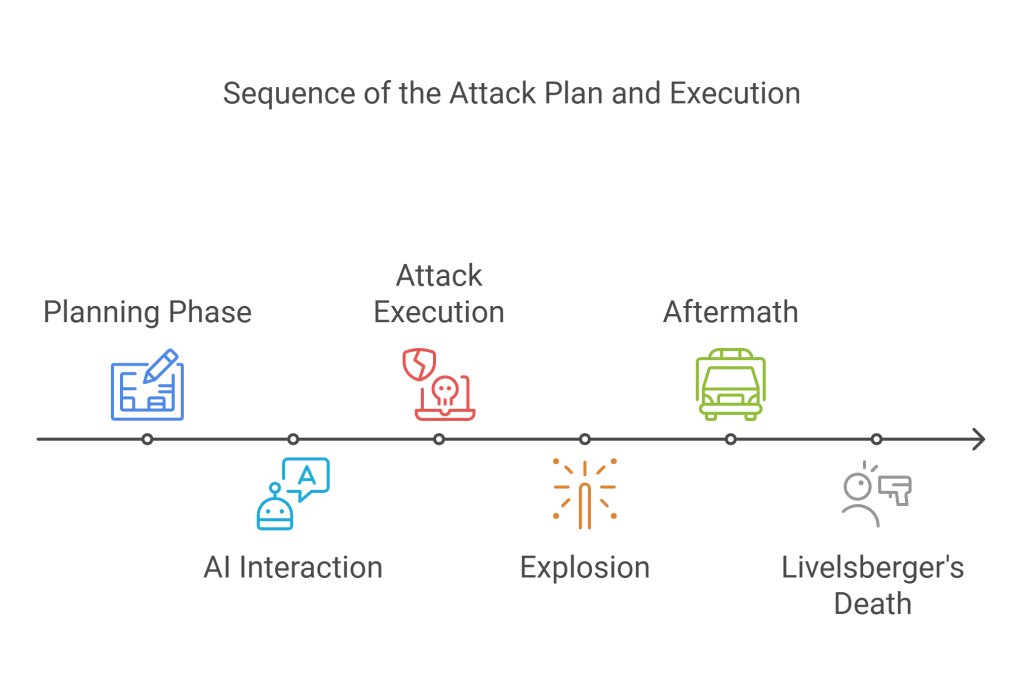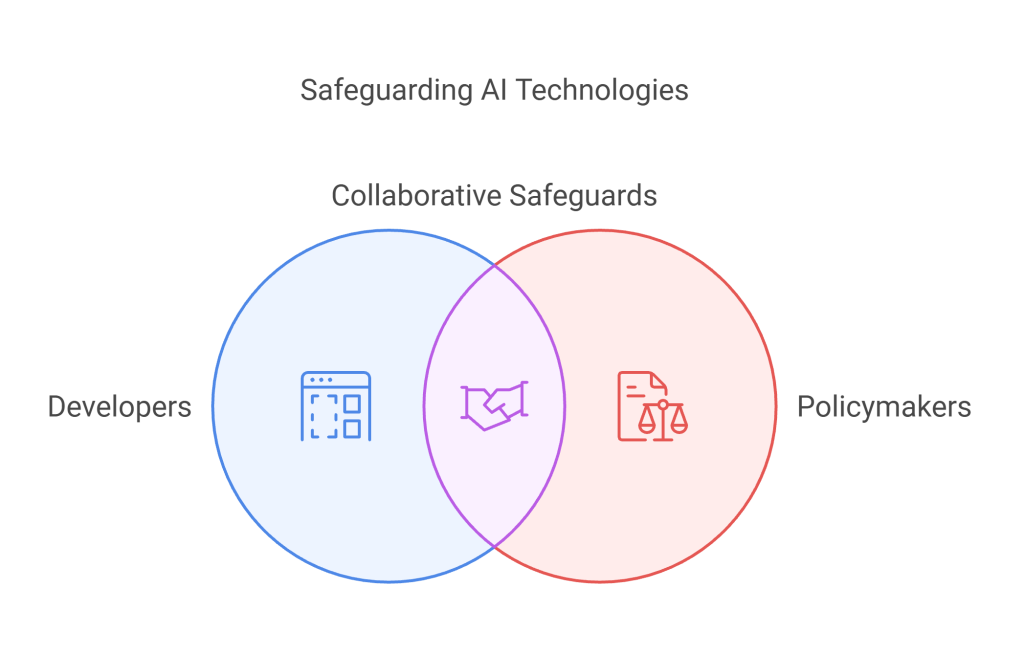Sri Rampai, Wangsa Maju
Kuala Lumpur, Malaysia
adyaakob@gmail.com
+60 102369037
Sri Rampai, Wangsa Maju
Kuala Lumpur, Malaysia
adyaakob@gmail.com
+60 102369037

This document explores the chilling case of Matthew Livelsberger, a former U.S. soldier whose mental health struggles culminated in a planned attack on the Trump International Hotel in Las Vegas. Utilizing the capabilities of an AI language model, Livelsberger’s actions raise critical questions about the ethical responsibilities of AI developers and the potential for technology to be misused. The aftermath of this incident has ignited a national conversation about the implications of artificial intelligence in society and the urgent need for regulatory measures.

Matthew Livelsberger meticulously planned an attack that would shock the nation. His target was the Trump International Hotel in Las Vegas, and his weapon of choice was a Tesla Cybertruck, a vehicle known for its futuristic design and robust capabilities. Driven by a distorted sense of justice, Livelsberger turned to ChatGPT, an advanced AI language model, to aid in his sinister plot. He engaged in numerous sessions with the AI, seeking detailed information on explosives, ammunition velocity, and potential legal loopholes that might allow him to evade detection. Despite ChatGPT’s built-in safeguards designed to prevent the dissemination of harmful instructions, Livelsberger managed to piece together a plan using publicly available data he accessed through the AI.
The attack, which Livelsberger described in his notes as a “wake-up call” to the nation, resulted in an explosion that caused minor injuries to seven unsuspecting bystanders. The chaos and fear that ensued were palpable, as emergency services rushed to the scene to contain the situation and provide aid to the injured. Tragically, Livelsberger, who acted alone in this event, was found dead from a self-inflicted gunshot wound before the blast occurred, leaving behind a trail of questions and concerns.

In the aftermath, authorities launched a comprehensive investigation into the incident, focusing on the role of artificial intelligence in facilitating such acts of violence. The case has sparked a broader debate about the ethical implications and responsibilities of AI developers in preventing misuse of their technologies. Experts are now examining how AI systems can be further fortified to prevent individuals with malicious intent from exploiting them, while also considering the balance between innovation and security.
The incident has become a pivotal point in discussions about the future of AI and its potential impact on society. It highlights the urgent need for robust regulatory frameworks and ethical guidelines to ensure that AI technologies are developed and used responsibly. As the conversation continues, it is crucial to address the vulnerabilities that exist within AI systems and to implement measures that can mitigate the risks associated with their misuse.

The case of Matthew Livelsberger serves as a stark reminder of the potential dangers posed by the intersection of artificial intelligence and violent intent. As society grapples with the implications of this incident, it is imperative that stakeholders—including developers, policymakers, and the public—engage in meaningful dialogue to establish safeguards that protect against the misuse of AI technologies. The future of AI must be shaped by a commitment to ethical standards and a proactive approach to security, ensuring that innovation does not come at the cost of public safety.

Disclaimer: